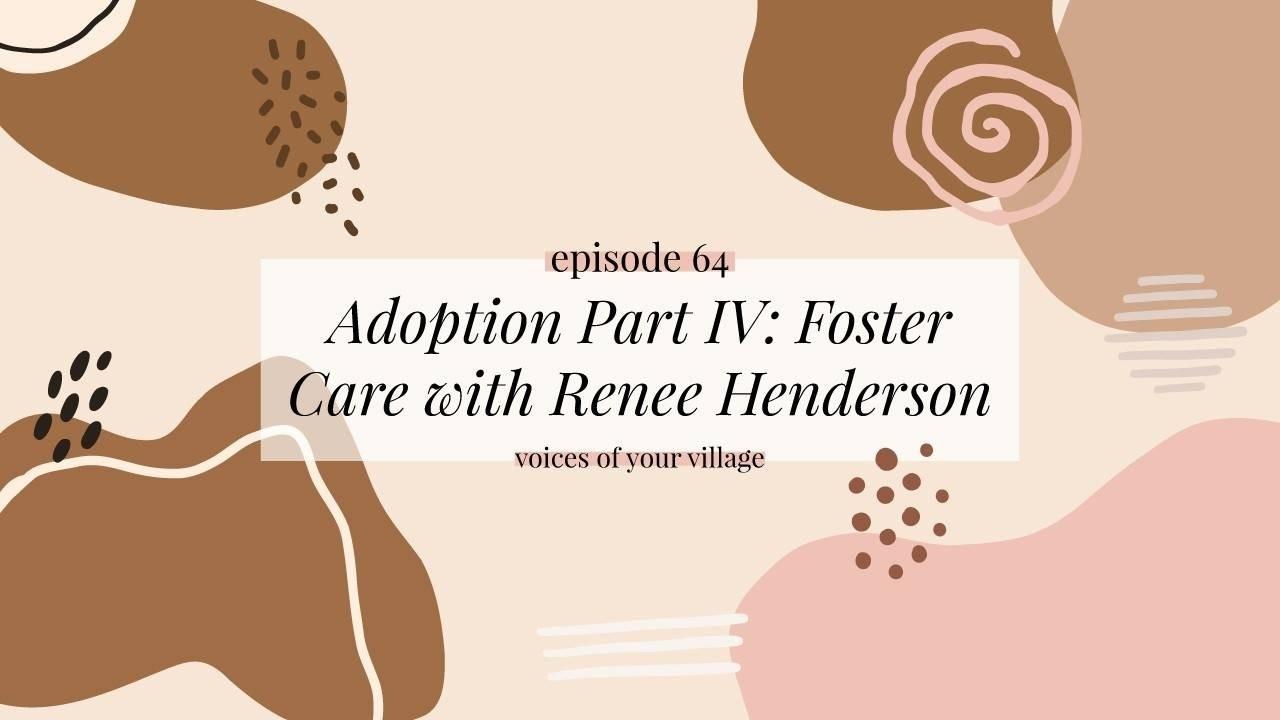Adoption - Part IV: Navigating foster care, with Renee Henderson

I’m jazzed to share part IV of our adoption series with foster and adoptive mama, Renee Henderson. Honestly, I was nervous to cover foster care because I had some preconceived fears about emotional development in the foster care system. Renee shared with us that she has been a foster parent to 15 kids in 4.5 years, and contrary to many foster stories, she adopted three children from foster care. We dove into this quite a bit because it’s important to enter foster care with expectations for how the system operates.
The overarching goal for foster care is reunification with the biological family.
However, a lot of foster parents enter the system hoping to adopt, resulting in many lengthy court battles, and much heartbreak. Renee shared how challenging it can be to fall in love with and parent children who can be gone in literally a moment’s notice. She once had to wake a child from their nap in order to hand them over for reunification. We discussed our shared concerns for kiddos’ emotional development as they are bounced between families or houses with little to no prep time or information on what’s coming next.
We create transition schedules for children who have lived in the same house and have the same routine every day, yet in foster care, we pull children from one house to the next with no preparation or processing time.
I’m not going to lie, the system still seems like a broken one to me. I struggle to understand why we place biological family as the utmost importance in a child’s life. We know that attachment is at the cornerstone of development, yet children in foster care experience an average of 4-6 different moves.
Let’s chat logistics. Renee did 30 hours of classes, physicals, home studies, background checks, etc over 6-8 months to get certified as foster parents. Foster parents, prior to licensing, have to provide financial statements to show that they don’t need the money. It varies by state, but in her state, Arizona, they get $19/day to cover expenses for the kids. Foster families aren’t responsible for the medical bills and for infants they often receive WIC to help cover formula and other costs. Needless to say, if you are going to foster for the money, you’re going to be disappointed.
“How do you say goodbye?” I asked her. “When foster care goes well, you’re going to have your heart ripped out,” Renee responded.
What are some other challenges? Renee explains that you’re often viewed as simply the babysitter, despite parenting them through thick and thin for sometimes years at a time. It’s also brutal when you don’t agree with a child’s reunification placement and you fear that it isn’t in the child’s best interest, but have no say or control in the matter.
Are you thinking of being a foster parent? Tune into the episode by clicking play above to dive into the full interview with Renee. I’d love to hear from you. Come join us on Instagram @seed.and.sew or in our Facebook group, Seed & Sew: Voices of Your Village to chat about your experience or ask your questions.
If you’re currently a foster parent and are looking for emotion coaching resources, snag our free emotion coaching guide!
